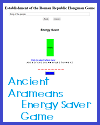Confucianism and Daoism are two of the most influential philosophical and ethical traditions in ancient China.
Confucianism:
- Confucianism, founded by Confucius (Kong Fuzi), emphasizes the importance of moral values, social harmony, and proper conduct in society.
- Confucianism centers on the concept of Ren, often translated as "benevolence" or "goodness." It encourages individuals to cultivate virtuous qualities, such as compassion, respect, and kindness, to create a harmonious society.
- Confucianism advocates for a well-structured and ordered society with clear hierarchical relationships, such as those between rulers and subjects, parents and children, and teachers and students.
- Confucianism emphasizes the Five Relationships: ruler and subject, father and son, husband and wife, older brother and younger brother, and friend and friend.
- Confucius also believed in the importance of education and the role of scholars (ru) in advising rulers.
- The Confucian moral code promotes proper etiquette, filial piety, and a sense of duty to one's family and society.
Daoism (Taoism):
- Daoism, founded by Laozi (Lao Tzu), focuses on living in harmony with the Dao (Tao), which can be translated as "the Way" or "the Path."
- The Dao is considered the fundamental principle that is the source of everything. It is formless, timeless, and transcends human understanding.
- Daoism encourages individuals to embrace simplicity, spontaneity, and naturalness. It promotes wu wei, which means "non-action" or "effortless action." This concept suggests that individuals should not force or strive to control every aspect of life but should go with the flow.
- In Daoism, there is a deep respect for nature, and the idea that humans should live in harmony with the natural world is prominent.
- The Daoist philosophy often seeks to balance opposing forces, such as yin and yang, and achieve equilibrium.
- Meditation and self-cultivation are essential practices in Daoism, helping individuals to connect with the Dao and find their inner peace.
Confucianism emphasizes social order, moral values, and ethical behavior within a structured society, while Daoism emphasizes a more natural and spontaneous way of living in harmony with the Dao, embracing simplicity, and seeking balance in the world. These two philosophical traditions have had a profound impact on Chinese culture and continue to influence Chinese society and philosophy to this day.
|





















































